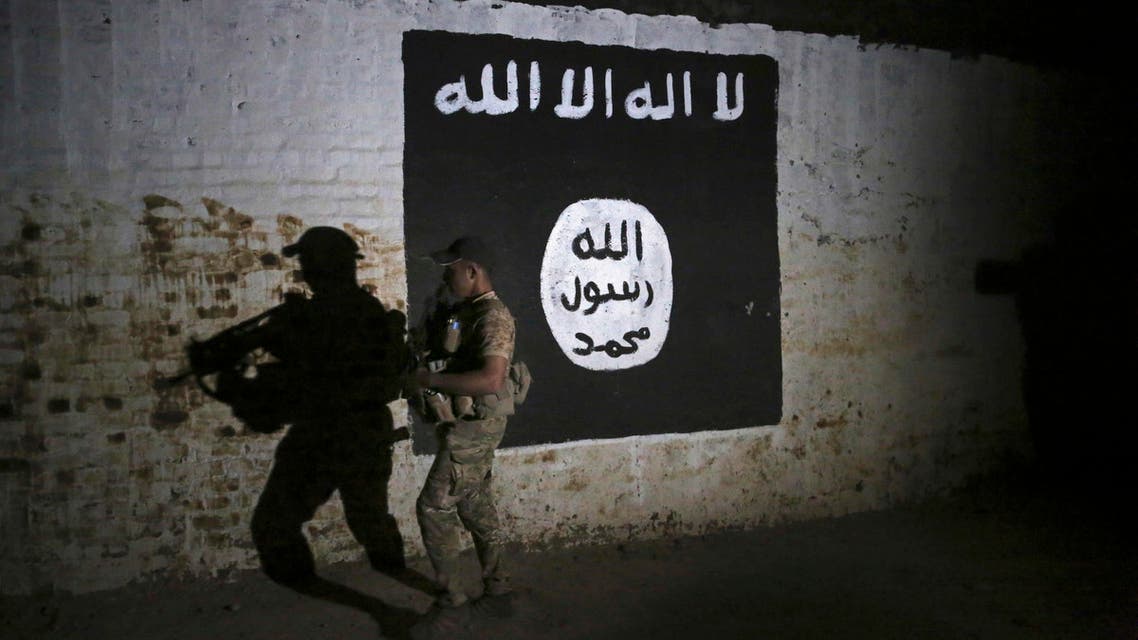
An Iraqi soldier inspects a recently-discovered train tunnel, adorned with an ISIS flag, in western Mosul
RABAT, May 1 (NNN-AGENCIES) — Morocco’s prison authority has been offering “de-radicalization” training since 2017 to former ISIS fighters and others convicted of terrorism offenses.
As a combatant for the ISIS who left his native Morocco to join what he felt was a holy fight in Syria, Mohsin says he saw all the horrors of war. “A terrifying experience,” he says.
Now a prisoner, the 38-year-old claims he is no longer the fanatic he was then, enraged with a murderous hatred for non-Muslims. Captured in Turkey and extradited to Morocco, he is serving a 10-year prison term on terrorism charges.
Now the former fighter has graduated with 14 other prisoners convicted of terror offenses from a Morocco de-radicalization program that might make them more eligible for an early release.
The media were invited to observe their graduation ceremony in a prison in Sale near the Moroccan capital, Rabat, and to interview some prisoners under monitored and controlled conditions.
The 15 inmates in crisp shirts and trousers stood solemnly for Morocco’s national anthem and were handed certificates.
Prison officials said the de-radicalization program consisted of three months of classes in prison on religion, law and economics, and that inmates also received training on how to start a business.
These most recent graduates were the ninth batch since the program started in 2017.
Moulay Idriss Agoulmam, the director of social-cultural action and prisoner reintegration at Morocco’s prison administration, said the program is entirely voluntary and works with inmates “to change their behavior and improve their life path.”
“It enables prisoners to form an awareness of the gravity of their mistakes,” he said.
Graduating from the program doesn’t make inmates automatically eligible for early release, but does increase their chances of getting a royal pardon or a reduced sentence.
That’s been the case for just over half of the program’s 222 graduates so far, the prison administration says. Since 2019, the training has also been offered to women convicted under Morocco’s Anti-Terrorism Act. Ten women have graduated so far — all of them since released, including eight with pardons.
Called “Moussalaha,” meaning “reconciliation” in Arabic, the program is offered to prisoners who have demonstrated a readiness to disavow extremism.
Numerous Moroccans have traveled to Syria, Iraq and elsewhere to join extremist groups. Morocco has also experienced multiple attacks itself. Five suicide attacks in Casablanca in 2003 killed 33 people. In 2011, an explosion destroyed a cafe in Marrakech, killing 17 people, most of them foreign tourists.
Al Mustapaha Razrazi, a clinical psychologist and member of the program’s scientific committee, said among 156 people who have been released after attending the courses, just one has been caught committing a crime again.
That person was convicted of a non-terrorism-related offense, he said. — NNN-AGENCIES
